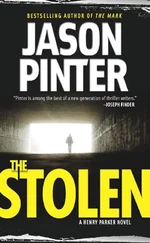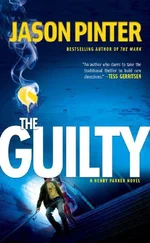From here to here is Greek. On the shelf above, Latin, the language of ancient Rome. Over there, all along the north wall, extends the Slavic world, whose very alphabet is a mystery to me. Here are the French and Spanish sections, and on the shelf over there, looking dark and serious, as though in formal dress, the representatives of the Germanic world whisper together in their own corner. (Complicated curly letters, "Gothic letters," Father said, without elaborating, and this Gothic script seemed to me like a sinister labyrinthine maze of intersecting paths.) While over there, in a glass-fronted bookcase, crowd the assembled texts of our forefathers (never foremothers: forefathers, before-fathers, ancient ghosts): the Mishnah, the two Talmuds, the Babylonian and the Jerusalemite, law and lore, hymns and angelologies, Mekhilta and Zohar, novellae and responsa, glossaries and grammars, Teacher of Knowledge and Stone of Help, Path of Life and Breastplate of Judgment, fables, lives of the saints, constituting a kind of dark suburb, a strange, gloomy landscape like a huddle of miserable hovels lit by a faint lantern, and yet they were not entirely foreign to me, these distant relations, because even bizarre titles like Tosefta, Spread Table, Yosippon, and The Duties of the Hearts were inscribed in Hebrew characters that gave me at least some right to speculate about what was spread on the Spread Table or what were the Duties that lay upon those Hearts.
Then came the history sections: four cramped bookcases, in one of which some refugee tomes were squeezed, latecomers who had found no resting place and had to make do by reclining precariously on the shoulders of their longer-established predecessors. Two of these four cases were devoted to the history of nations and two to that of the Jewish people. In the former I found on the bottom shelf the dawn of mankind, the beginning of civilization, and on the next shelf up ancient history, and then the Middle Ages (blood-chilling drawings, dark-robed doctors in devilish masks bending over dying victims of the Black Death). Above these, in bright daylight, the Renaissance and the French Revolution, and higher still, so high they were almost touching 'the ceiling, were books about the October Revolution and the World Wars, which I strove to study in order to learn a lesson from an examination of the mistakes of earlier generals. Those books that I could not read because they were in foreign languages I nevertheless scanned page by page in tireless search of illustrations and maps. Many of these are engraved on my memory to this day: The Exodus from Egypt. The Collapse of the Walls of Jericho. The Battle of Thermopylae: dense forests of lances, javelins, spears, and helmets reflecting the flashing sunlight. The map of the travels of Alexander the Great, with bold arrows extending from the borders of Greece to Persia and even to India. And a picture of heretics being burned in a town square, showing the flames already licking at their feet, and yet their eyes are closed in piety and spiritual concentration, as though they can hear at last the celestial music. And the expulsion of the Jews from Spain: masses of refugees bearing parcels and sticks crowded together in a decrepit ship on a stormy sea seething with monsters that seem happy about the fate of the banished Jews. Also a detailed plan of the eastern Diaspora, with thick circles around Salonica, Smyrna, and Alexandria. A vivid color picture of an old synagogue in Aleppo. And faraway communities of scattered Jews sprouting at the edges of the map, in Yemen, Cochin, Ethiopia (which was called Abyssinia at that time). And a picture of Napoleon in Moscow, and Napoleon again in Cairo at the foot of the pyramids: a small, portly man with a three-cornered hat on his head, one hand pointing boldly toward the vast expanse of the horizon, the other concealed coyly inside his coat. The wars of the Hasidim and their opponents: portraits of grim-faced rabbis. A detailed map of the spread of the Hasidic courts and the receding lines of defense behind which the retreating Mitnagdim entrenched themselves without abandoning their opposition. And stories of exploration and discovery, with fleets of sailing ships whose carved prows pass through straits in unknown archipelagoes, of inaccessible continents, empires, the Wall of China, Japanese palaces that no man could enter and live, and savage inhabitants dressed in feathers, with bones stuck through their noses. And maps of the whale hunters, the polar sea, and the Bering Sea, Alaska, and the Gulf of Murmansk. And here is Theodor Herzl leaning on an iron railing and staring proudly and dreamily toward the lake that stretches at his feet. Immediately after Herzl, the first pioneers appear, few and miserable, huddled like abandoned sheep in a desolate landscape consisting of nothing but sand and a solitary olive tree, slightly to one side. And a map of the early Jewish settlement: a few scattered acres, spreading from map to map and strengthening from table to table. And here is Comrade Lenin, in a cap, making a speech, firing with enthusiasm crowds waving clenched fists. This Lenin looks to me a bit like our own Dr. Weitzmann, who never stops pleading with the British instead of hitting at them. (How about Sergeant Dunlop? Should we hit at him, too?) And here is a map of the Nazi camps, with photographs of skeletal Jewish survivors. And here are plans of famous battles, Tobruk, Stalingrad, Sicily, and here at last marches the Jewish Brigade, Hebrew warriors with the six-pointed star on their sleeves, in Africa and Italy, and pictures of tower-and-stockade kibbutzim in the hills, in the desert, in the valleys, intrepid pioneers mounted on horses or tractors, with rifles slung aslant their chests, their faces calm and courageous.
I would shut the book and replace it in its correct spot. Then I would take down another, and again turn the pages, searching, particularly for illustrations and maps. By the end of an hour or two I was slightly intoxicated, a panther in the basement, bursting with oaths and vows, clearly aware of what I had to do and what I had to devote my life to, and for what, when the moment of truth came, I had to sacrifice it for.
At the front of the big German atlas, even before the map of Europe, came a dizzying map of the whole universe, with nebulas extending away beyond the bounds of the imagination and endless expanses of unfamiliar stars. Father's library resembled that map. It contained familiar planets, but it also had its mysterious nebulas, Lithuanian and Latin, Ukrainian and Slovak, and even a very ancient language named Sanskrit. And there was Aramaic, and there was Yiddish, which was a kind of satellite of Hebrew, a craggy, pitted orb floating wanly over our heads, among the tattered clouds. And light-years away from Yiddish there were more and more firmaments, where the Epic of Gilgamesh twinkled remotely, and Enuma Elish, and the Homeric Hymns and Siddhartha, and wonderful poems called, for example, Nibelungenlied, Hiawatha, Kalevala. Musical names that thrill the tip of my tongue and my palate when I roll them around in my mouth and pronounce them inwardly, in a whisper, only to myself: Dante Alighieri, Montesquieu, Chaucer, Shchedrin, Aristophanes, Till Eulenspie-gel. And I recognize each one by its color and binding and its place in its own galaxy, and know who its neighbors are.
And what about me? Who am I within this great universe? A blind panther. An ignorant savage. A scamp who spends his time messing around in the Tel Arza Woods. A wretched plaything in the hands of some wretched Ben Hur. Instead of shutting myself up at once, from today, from this morning, here among these books.
For ten years?
For thirty?
Breathing deeply, plunging into the well, starting to crack one riddle after another?
Читать дальше












